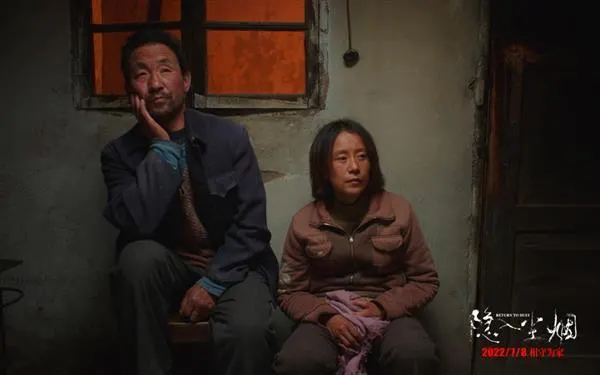Li Ruijun’s arthouse film became a surprise hit with Chinese audiences until banned by censors on the eve of the CCP’s 20th Congress
Adam N Lee, chinaworker.info
Since its release in July, the low-budget arthouse film ‘Return to Dust’ (Yin Ru Chen Yan) has proven extremely popular at cinemas and on streaming platforms in China, while also featuring at international film festivals. But prior to 1 October, the start of the National Day holidays, the film suddenly disappeared.
This timeline suggests the film was banned in connection with the ruling CCP’s 20th Congress, which opened on 16 October and is always an especially sensitive time in Chinese politics accompanied by arrests, heightened censorship and various crackdowns. Nothing is allowed to spoil the party – except of course that China still has hundreds of millions in Zero-Covid lockdowns and the economy is in its worst shape for 30 years.
This review will therefore be in two parts: firstly, the film itself. And secondly, why has it caused offence to the dictatorship?
The movie depicts an unusual love story set in the grinding poverty of rural Gansu province, which borders Xinjiang and Inner Mongolia. This is the home province of director Li Ruijun.
Ma Youtie and Cao Guiying are a middle-aged couple pushed together by an arranged marriage. Guiying is disabled and has suffered abuse for most of her life. Youtie is a poor farmer whose philosophy on life is hard work, always paying his debts, and accepting his spartan conditions.
Class extremes
The strong charm of this film is in telling how these two form a strong attachment to each other without being sentimental (this is not Hollywood). The story shows the brutal class realities of modern China with a local capitalist, the son of the village committee chairman, driving around in a BMW, while Guiying and Youtie travel by donkey.
The exploitation of the couple is an allegory for how the rural poor are treated in China. Youtie is the only villager with a rare blood type and therefore becomes a person of interest to the capitalist, who needs this for his father’s costly medical treatment. Youtie offers to give blood transfusions freely, refusing to profit from this situation. Yet his beneficiaries are the same family driving the couple out of their ramshackle house to profit from its demolition. A line spoken by Youtie in the film has been widely cited on social media: “In the face of the sickles, what can the wheat do?”
Guiying is played by film star Hai Qing. Youtie is played by untrained actor Wu Renlin, a farmer in real life. His hardened hands show Wu has worked in the fields. The film therefore has a realistic gritty feel because its director Li cast amateurs in most of the roles.
Backlash
So why did the film fall foul of the censors? While not overtly political, the portrayal of poverty and inequality in Return to Dust undoubtedly made uncomfortable viewing for the dictatorship. Xi Jinping has claimed a “historic achievement” in eradicating extreme poverty in China. In reality, the results of that campaign were overblown by statistical manipulation. In 2020, Premier Li Keqiang famously reported that more than 40 percent of the population had an income of just 1,000 yuan a month.
While popular with cinema-goers, the film increasingly drew a vitriolic backlash from online nationalists. They said its depiction of poverty damaged China’s standing in the eyes of the world. One article likened it to treason and criticised regulators for approving such films: “Don’t you feel ashamed and guilty when a film that insults our party and people, insults our government comes out of your hands?”
Today, Return to Dust cannot be seen inside the digital firewall. The film’s title has therefore taken on new meaning. Reflecting Xi’s increasingly repressive rule, film censorship is becoming more intrusive. Last year the 1990s film Fight Club was given a new ending announcing the police had “uncovered the conspiracy and arrested all the criminals”. The biopic Bohemian Rhapsody was cut to remove scenes that showed singer Freddie Mercury to be gay.




